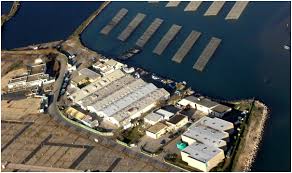French focus on aquaculture challenges

AN ecological approach to aquaculture will be the subject of a special workshop in Montpellier tomorrow, at the start of the Aqua 2018 conference and exhibition.
Organised by the French research organisation CIRAD and the FAO (the Food and Agricultural Organisation of the UN), the session will focus on agro-ecology and its application to aquaculture.
Agro-ecology is based on applying ecological concepts and principles to optimise interactions between plants, animals, humans and the environment, while taking into consideration the ecosystem and social aspects.
The rapid growth in global aquaculture production has sometimes had adverse environmental and social impacts, which the aquaculture sector is now seeking to reduce, said CIRAD.
As in other fields of agriculture, agro-ecology is one of the most promising avenues for inventing a new resilient and sustainable aquaculture, but also for helping the sector to adapt to climate change.
Lionel Dabbadie from CIRAD said: ‘While traditional aquaculture, as practised for thousands of years in Asia, has always been perfectly integrated into its natural, agricultural and human environment, new approaches are currently emerging.’
Examples include aquaponics (combining aquaculture and hydroponics), integrated multi-trophic aquaculture (combining polluting species with extractive species and crops such as filter-feeding molluscs or macroalgae), insect farms to feed fish, or the use of lumpfish to control sea lice in salmon.
‘Rice-fish farming systems in Madagascar and fish-rice systems in Guinea are two examples of agro-ecological approaches that CIRAD is studying and will present at the workshop on August 25,’ said Dabbadie.
Rice-fish farming involves producing fish in rice fields.
‘The fish stir the sediments at the bottom of the fields and thereby contribute to the suspension of nutrients that the rice needs in order to grow. The fish, on the other hand, feed on the periphyton that develops on the rice stalks.’
In this integrated agro-ecological system, ‘not only are two food products produced in the same space, but more is produced than if they were cultivated separately’, Dabbadie added.
Tomorrow’s workshop has three objectives: documenting current practices; understanding how integrated aquaculture and agro-ecology help to meet the challenges of reducing poverty and hunger; and identifying knowledge gaps in the development of sustainable agro-ecological aquaculture.
The Aqua conference, a special aquaculture gathering organised every six years by the European Aquaculture Society (EAS) and the World Aquaculture Society (WAS), is expecting 2,500 participants from more than 60 countries at the Corum Congress Centre in Montpellier from August 25 to 29.
The four organisations involved in aquaculture research in France (IFREMER, INRA, CIRAD and IRD) will play an active role in the event through presentations by researchers throughout the congress.
Picture: The Palavas research platform

